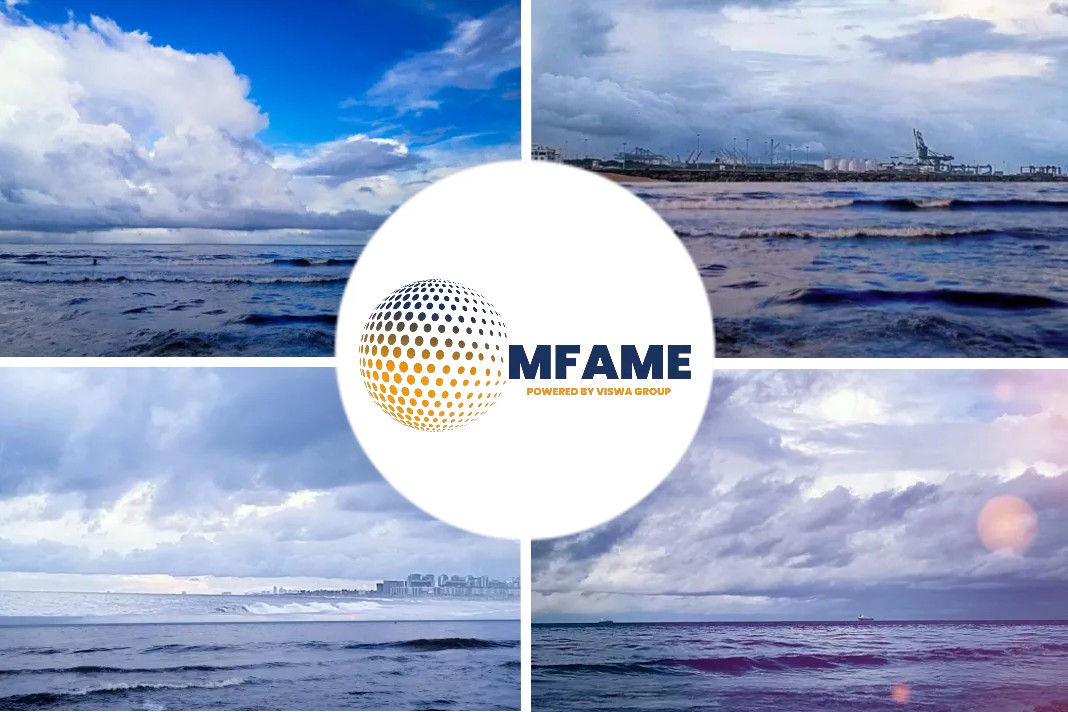- The quality of materials and coatings used is the important factor in optimising EGCS safety and prevent any corrosion problems.
- CSA 2020 suggests using quality, high-end materials to install marine EGCS to meet global sulphur cap requirements.
- By investing in quality materials, and experienced installers, risks can be mitigated.
- Grimaldi Group, operates four different EGCS over 50 ships reports more than 90% reliability, but flags up the bellows as requiring special attention.
According to CSA 2020, the quality of materials and coatings used is the important factor in optimising EGCS safety and prevent any corrosion problems during operation, writes Malcolm Latarche for an article published in ShipInsight.
Usage of quality materials
The advice from Members of the Clean Shipping Alliance (CSA) 2020 for the shipowners looking to install marine exhaust gas cleaning systems to meet global sulphur cap requirements are to ensure the below are using quality, high-end materials:
- ensure that manufacturers,
- shipyards and
- installers.
EGCS safety
CSA 2020 members, based on the collective experience gained from about 1500 EGCS installations, have figured the areas to focus inorder to avoid any problems during operation.
The quality of materials and coatings used are the most important factor in optimising EGCS safety and averting any corrosion problems.
Shipowners experience
Spliethoff
Arne Hubregtse, Executive Board Member, Spliethoff said, “There are always some challenges involved when specifying ships’ machinery systems and scrubbers are no different.”
Hubregtse added that by investing in quality materials, established suppliers and experienced installers, and by optimising machinery space layouts, risks can be mitigated.
“We have installations onboard about 50 vessels in the Spliethoff fleet and to date we have not experienced any corrosion or other significant issues through operating these systems.”
Apart from the specification of quality materials, experienced installers with good supervision during the installation process are also insisted.
Wallenius Wilhelmsen
Wallenius Wilhelmsen also echoes Spliethoff’s experience. Wallenius Wilhelmsen is a shipowner operating a fleet of more than 130 deep sea ro-ro vessels.
Roger Strevens, Vice President, Global Sustainability, Wallenius Wilhelmsen, said that,
- As with any machinery, EGCS failure is also possible.
- It is believed that Wallenius Wilhelmsen has minimised the risk.
- If you buy cheap, you’ll pay twice!.
Wallenius Wilhelmsen installed its first EGCS in 2014 knowing that as with any first of type installation there would be the inevitable teething troubles.
Strevens added, “We learned a lot from that first installation. The experience proved invaluable to subsequent installations.”
Marine Technology, Carnival Corp
Over 200 exhaust gas cleaning systems aboard 83 ships operating under the Carnival Corporation umbrella have also been largely reliable, with Mike Kaczmarek, Sr. Vice-President Marine Technology, Carnival Corp, citing over 90% current system availability.
Grimaldi Group
Grimaldi Group, which operates four different EGCS over 50 ships and also reports more than 90% reliability, also flags up the bellows as requiring special attention.
Dario Bocchetti, Head of the Grimaldi Group Corporate Energy Saving & Innovation, said,
- The expansion bellows after the scrubber and the exhaust gas line can create problems.
- It is important to use high quality steel or alloys.
- Proper application of anti-corrosion coatings to the discharge outlet should be taken care of.
- Good specification and subcontractor selection can prevent problems later.
CSA 2020’s experience
CSA 2020’s Chairman
Kaczmarek, CSA 2020’s Chairman, said, EGCS systems are designed for world-wide operations and normally meet or exceed the specification.
The few things to be aware of is that –
- It is recommended that the upper bellows (expansion joints) above the EGCS tower are replaced with a design using upgraded alloys during the installation process.
- This can help prevent any subsequent corrosion.
- Selection of quality materials is important.
CSA 2020 Executive Director
CSA 2020 Executive Director Ian Adams “By confirming the operational performance of our members’ EGCS installations, we hope to allay any concerns relating to system failure or corrosion.”
He added, the technology, the materials used, and the experience gained from those first installations means that any corrosion issues can now be readily resolved.
Downtime for installation
In November, Danish ferry operator DFDS reported that the downtime experienced with the EGCS installed onboard the 37,939gt ro-ro Ficaria Seaways was less than 0.002% during the 12-month period to 1 July 2019.
Did you subscribe to our daily newsletter?
It’s Free! Click here to Subscribe!
Source: ShipInsight



















